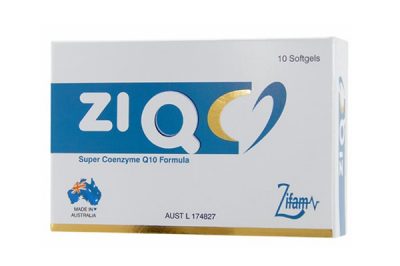
Coenzyme Q10: The Antioxidant Powerhouse
Lifestyle, Oxidative Stress and Chronic Lifestyle Disease – The Nexus
Today, we are leading a life which makes us prone to a wholesome of life-style related disorders. The food habits, working hours, fast life, sedentary lifestyle, the erratic sleeping schedules, stress etc. are the perfect dynamics that set the stage for the development of many life-style related disorders like Diabetes Mellitus, Cardiovascular diseases, Ill reproductive health, Cancers, Chronic Fatigue, Migraine attacks and so on.
It is fairly established that oxidative stress is the umbrella under which most if not all chronic diseases stem from. A majority of chronic diseases and their complications could be taken care off or delayed by reducing the raised oxidative stress with the help of antioxidants.
Coenzyme Q10 – Mitochondrial Oxidant of the Cell
Coenzyme Q10 (CoQ10) is a nutrient that is present naturally in human body. CoQ10 acts as an antioxidant, which protects cells from damaging and plays an important part in the metabolism.
Why Coenzyme Q10 important?
CoQ10 plays a key role in the body, most healthy people have enough CoQ10 naturally. There is some evidence that adding more in the form of CoQ10 supplements may be beneficial. Increasing age and some medical conditions are associated with dropping levels of CoQ10.
CoQ10 has been used to treat many different conditions. Levels of CoQ10 in the body decrease with aging. CoQ10 levels have also been found to be lower in people with certain conditions, such as heart disease, and in those who take cholesterol-lowering drugs called statins.
Sources of Coenzyme Q10
CoQ10 is also present in many foods we eat in our daily life. CoQ10 is found in meat, fish, and nuts. The amount of CoQ10 found in these dietary sources is not sufficient to significantly increase CoQ10 levels in your body. CoQ10 dietary supplements are available as capsules, chewable tablets, liquid syrups, wafers, and even parenteral forms.
Coenzyme 10 – Review of Evidence
The review of evidence of CoQ10 in various clinical trials have been summarized below:
- Heart conditions: CoQ10 has been shown to improve symptoms of congestive heart failure. Although, findings are mixed, CoQ10 might help reduce blood pressure. Some research also suggests that when combined with other nutrients, CoQ10 might aid recovery in people who have had bypass and heart valve surgeries.
- Diabetes: Although more studies are needed, some research suggests that CoQ10 may help reduce low-density lipoprotein (LDL) cholesterol and total cholesterol levels in people with diabetes, lowering their risk of heart disease.
- Statin-induced myopathy: Some research suggests that CoQ10 might help ease the muscle weakness and pain sometimes associated with taking statins.
- Infertility: Research suggests coenzyme 10 may help improve reproductive health and infertility outcomes in men and women
- Migraines: Some research papers suggest that CoQ10 might decrease the frequency and duration of these headaches.
- Physical performance: Because CoQ10 is involved in energy production, it is believed that this supplement might improve your physical performance.
While there is no standard recommended dosage of CoQ10, studies have used doses of CoQ10 ranging from 50 milligrams to 1,200 milligrams per day in adults across different indications. Generally, a typical daily dose is 100 milligrams to 200 milligrams per day.
Coenzyme Q10 (CoQ10) is a compound found naturally in virtually every cell in the human body. Coenzyme Q10 deficiency is often associated with a vast spectrum of health consequences. Coenzyme Q10 supplementation under the supervision of a qualified practitioner may be bring optimal benefits
An Awareness Initiative from Makers of:


Product of:

Zifam Pinnacle Pty Ltd,
Sydney, Australia



